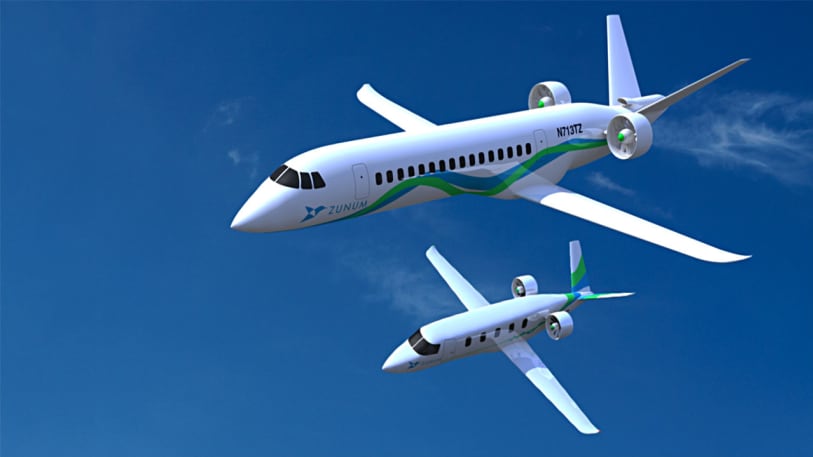Boeing invests in better battery power
30 January, 2018
2 min read
By joining our newsletter, you agree to our Privacy Policy


New battery technology that’s lighter, less likely to catch fire and delivers a higher energy density has caught the eye of US aerospace giant Boeing.
Boeing is investing in California-based start-up Cuberg Inc. which is developing next-generation battery technology for potential aerospace and industrial applications.
The technology combines a lithium metal anode, a highly stable proprietary electrolyte and a high-voltage cathode to achieve high energy density and thermal durability. It is designed to be a drop-in solution for off-the-shelf lithium-ion battery manufacturing equipment.
Both Boeing and Airbus are investigating electric propulsion and the US manufacturer is also backing a Seattle-based start-up, Zunum Aero, planning to bring a small hybrid-electric commuter plane to the market in 2022.
READ: Electric-jet hybrid could rekindle services to small cities.
Boeing is also keenly aware of the limitations of battery technology after overheating problems with the Boeing 787’s lithium-ion batteries grounded the fledgling fleet in 2013. The company subsequently made design changes to address the problem.
The new investment is being made through Boeing’s innovation cell, HorizonX Ventures, which was behind the investment in Zunum.
Since its establishment in April 2017, HorizonX has also invested in autonomous systems, wearable technologies and artificial intelligence. However, Cuberg is HorizonX’s first investment in energy storage.
"Cuberg's battery technology has some of the highest energy density we've seen in the marketplace, and its unique chemistries could prove to be a safe, stable solution for future electric air transportation," HorizonX vice president Steve Nordlund said.
Cuberg was founded by founded by Stanford University researchers and chief executive Richard Wang said the partnership with the aerospace giant would allow the company to extend its battery capabilities to help power aerospace platforms.
"With funding from Boeing, we will expand both our team and our research and development facilities to help customers integrate our batteries into their products, while also scaling up our technology to fully automated production," he said.
Next Article
3 min read
Virgin gets nod for Tiger deal

Get the latest news and updates straight to your inbox
No spam, no hassle, no fuss, just airline news direct to you.
By joining our newsletter, you agree to our Privacy Policy
Find us on social media
Comments
No comments yet, be the first to write one.
